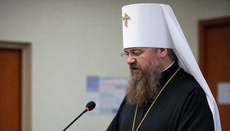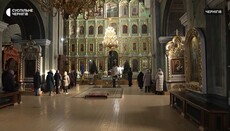Estonian President to Supreme Court: Ban on EOC is Unconstitutional

Law passed in June would require the Estonian Orthodox Church to cut all alleged ties with the Moscow Patriarchate, despite the EOC having been autonomous since 1993.
TALLINN — Estonian President Alar Karis has sent the law containing amendments to the Churches and Parishes Act to the country's Supreme Court, formally requesting that it be declared unconstitutional.
The law would require the Estonian Orthodox Church to sever all supposed organizational and financial ties with the Moscow Patriarchate within six months. As reported by err.ee, President Karis contends that this law violates several articles of the Constitution of the Republic of Estonia and "disproportionately restricts freedom of association and religion."
As quoted by err.ee, the President said:
"We have legal means to control and limit the subversive activities of the Moscow Patriarchate directed against sovereignty and democracy. The current law not only allows but also requires the implementation of comprehensive control over religious associations. The Penal Code defines high treason as a crime, which also covers information activities. Therefore, the issue is not the lack of legal instruments, but their insufficient or incomplete use – if necessary, we must use the available opportunities more decisively."
Karis argued that if there is a threat, the "broad and vague prohibition" is not necessary, as it prevents religious associations not only from administrative and economic ties, but also doctrinal ties. The preventing of administrative and economic ties is enough, he said.
He also said that the law could have the opposite effect of its intention, as the "authority of a foreign religious leader" may increase if the state meddles in religious affairs. There is also the possibility that a similar ban could be imposed on associations such as political parties, which is "incompatible with the Constitution."
"If the text of the law is unclear, ambiguous and unjustifiably broadly interpreted, then instead of solving problems, it can, on the contrary, add them. In this case, the security risks may not decrease, but increase, that is, give the opposite result to what is expected: there will be not fewer tests, but more."
President Karis has attempted to block the legislation multiple times already but has been overruled by the Estonian Parliament, which has even gone so far as to refuse to review the law. Most recently reported by UOJ was the news that an Estonian court had upheld the city of Tallinn’s decision to evict the Estonian Orthodox Christian Church from its administrative offices in the nation's capital.









